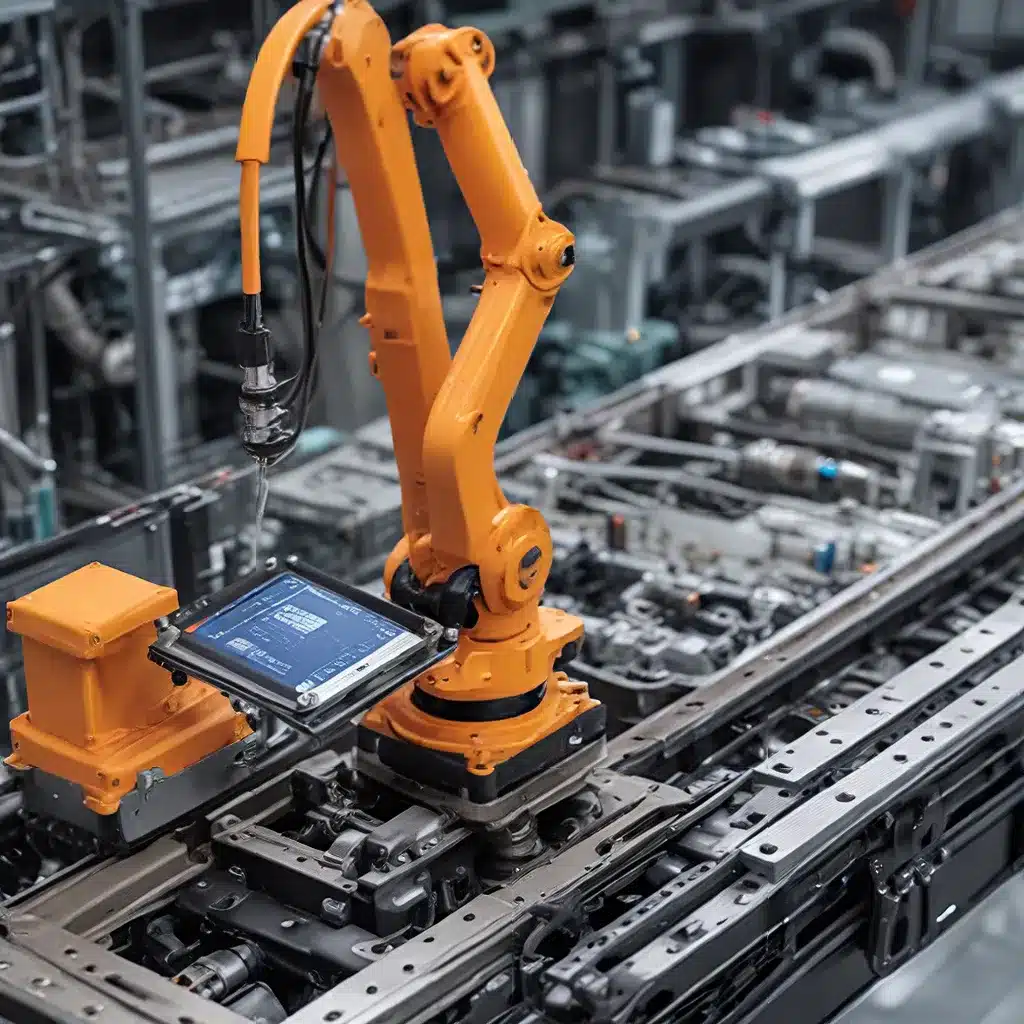
The Rise of Industry 4.0 and Smart Manufacturing
The digital transformation of the manufacturing industry, often referred to as Industry 4.0, has ushered in a new era of smart factories equipped with advanced sensors, embedded software, and robotics. These technological advancements have revolutionized the way companies manufacture, improve, and distribute their products, delivering real-time decision-making, enhanced productivity, flexibility, and agility.
At the heart of this transformation is the Internet of Things (IoT). IoT devices, integrated throughout the production facility, collect and analyze vast amounts of data from the factory floor. By combining this operational data with information from enterprise systems, such as ERP and supply chain management, manufacturers can gain unprecedented visibility and insight, leading to unprecedented levels of efficiency and responsiveness to customer demands.
Industry 4.0 concepts and technologies are being widely adopted across various industrial sectors, including discrete and process manufacturing, as well as oil and gas, mining, and other industrial segments. The integration of cloud computing, artificial intelligence (AI), and machine learning (ML) into these smart factory environments has been a game-changer, enabling predictive maintenance, self-optimization of processes, and a new level of efficiency and responsiveness unparalleled in previous industrial revolutions.
Sensor Networks and the Connected Factory
At the core of the smart factory concept is the extensive deployment of sensors and connected devices that collect real-time data from the manufacturing processes. These IoT devices, equipped with unique IP addresses, allow for seamless connectivity and data exchange between the various systems and components within the factory.
The sensor network architecture in a smart factory is designed to enable information transparency and better decision-making. Edge computing plays a crucial role in this, as it allows for rapid data analysis and response, minimizing the latency associated with sending data to the cloud and back to the factory floor. This is particularly important for time-sensitive applications, such as safety or quality monitoring, where immediate action is required.
Predictive maintenance is one of the key applications of sensor networks in smart factories. By collecting data from industrial machines and analyzing it using machine learning algorithms, manufacturers can predict when equipment is likely to fail, allowing for proactive maintenance and minimizing costly downtime. This data-driven approach to asset management is a significant departure from traditional reactive maintenance regimes, unlocking new levels of efficiency and operational resilience.
Enhancing Flexibility and Customization
The digital transformation enabled by Industry 4.0 has also empowered manufacturers to achieve new levels of flexibility and mass customization. By leveraging advanced simulation software, new materials, and 3D printing technologies, companies can now cost-effectively produce small batches of specialized items to meet individual customer needs.
This shift from mass production to mass customization is a hallmark of the fourth industrial revolution. Smart factories can quickly adapt their production processes and supply chain operations to respond to changing customer demands, ensuring that they remain agile and competitive in the ever-evolving market landscape.
The integration of operational data with enterprise-wide information, such as sales, inventory, and logistics, further enhances this flexibility. By sharing production data with suppliers, manufacturers can better schedule deliveries and optimize their supply chain, reducing waste and improving overall efficiency.
Securing the Connected Factory
As manufacturers embrace the benefits of connectivity and data-driven decision-making, the importance of cybersecurity has become increasingly paramount. The very interconnectivity that enables the smart factory also exposes new entry points for potential malicious attacks and malware.
Addressing this challenge requires a comprehensive cybersecurity approach that encompasses both information technology (IT) and operational technology (OT) systems. Manufacturers must consider the unique security requirements of their cyber-physical systems, which integrate the digital and physical worlds, and implement robust access controls, data encryption, and network segmentation to mitigate the risks.
Developing a digital twin, a virtual replica of the manufacturing processes and assets, can also play a crucial role in enhancing security. By simulating and testing changes to the production environment, manufacturers can identify and address potential vulnerabilities before they manifest in the real world, reducing the risk of disruptions and costly downtime.
Unlocking the Potential of Data and Analytics
The data-driven nature of smart factories generates an abundance of big data that can be leveraged to drive continuous improvement and innovation. Data analytics and AI-powered insights enable manufacturers to uncover historical trends, identify patterns, and make better-informed decisions that optimize their operations.
Beyond the factory floor, this data integration across the enterprise can provide even deeper insights. By combining production data with information from human resources, sales, and warehousing, manufacturers can make more strategic decisions based on factors such as sales margins and personnel availability.
The sensor-networks.org platform offers a wealth of resources and expert guidance to help manufacturers navigate the complexities of Industry 4.0 and leverage the full potential of sensor technologies in their smart factory environments. From predictive maintenance to supply chain optimization, the platform provides practical insights and case studies to assist manufacturers in their digital transformation journey.
Partnering for Success in the Age of Industry 4.0
Realizing the full potential of Industry 4.0 requires a strategic approach that integrates IT and OT systems, leverages the power of cloud computing and hybrid multicloud architectures, and harnesses the capabilities of AI and machine learning.
Experts, such as those from IBM, can assist manufacturers in modeling and deploying their vision of IoT-enabled connected operations, helping them achieve new levels of agility and flexibility. These partnerships can also provide guidance on data integration, supply chain optimization, and enterprise asset management, ensuring that manufacturers are well-equipped to navigate the complexities of the fourth industrial revolution.
As the manufacturing industry continues to evolve, sensor technologies and smart factory innovations will play a pivotal role in driving efficiency, flexibility, and competitiveness. By embracing the transformative potential of Industry 4.0, manufacturers can unlock unprecedented opportunities for growth, innovation, and customer-centric responsiveness.